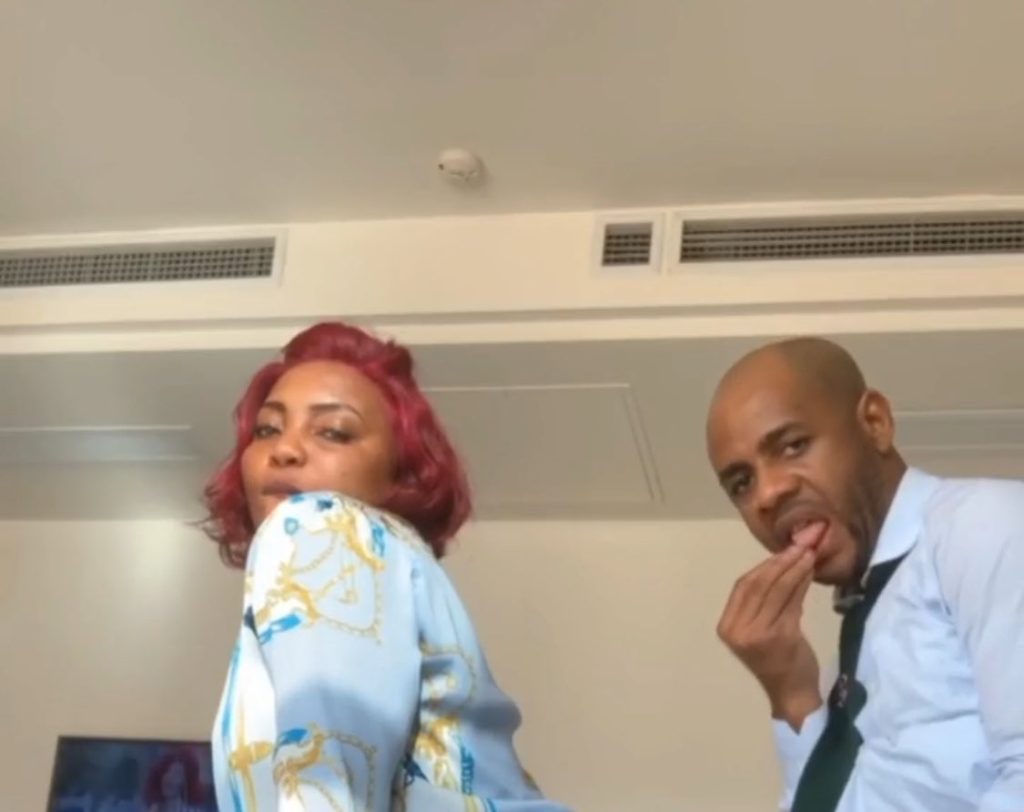Imagine a world where over 400 videos suddenly appear online, showing a senior civil servant engaging in intimate activities with different women.
This is the reality in Equatorial Guinea, a small country in Africa.
The videos have caused shock and excitement among the people, especially since some of the women involved are connected to powerful government figures.
A Political Conspiracy?
The man in the videos, Baltasar Ebang Engonga, is a nephew of the current president and is rumoured to be eyeing the presidency himself.
Some believe that the leak of these videos is a deliberate attempt to discredit him and ruin his chances of becoming the country’s next leader.
The Political Landscape
President Teodoro Obiang Nguema has been in power since 1979, making him the world’s longest-serving president.
Despite overseeing an economic boom in the past, the country is now facing challenges due to dwindling oil reserves.
The wealth gap is stark, with a small elite living lavishly while many citizens struggle in poverty.
Mr. Engonga, who was in charge of investigating financial crimes, was arrested for embezzlement.
He was accused of stealing a large sum of money from the government and hiding it in secret accounts.
Shortly after his arrest, the intimate videos started surfacing online, causing a stir in the country.
The Aftermath
The videos first appeared on social media platforms like Telegram before spreading to WhatsApp groups in Equatorial Guinea.
People quickly identified Mr. Engonga and the women in the videos, leading to widespread discussions and debates about the scandal.
The Political Intrigue
In a country where opposition is suppressed, politics often revolves around palace intrigue.
The scandal involving Mr. Engonga is just one piece of the larger puzzle of power struggles and ambitions within the government.
In conclusion, the leaked videos in Equatorial Guinea are not just a scandal but a reflection of the complex political dynamics at play in the country.
As the drama unfolds, the future of leadership in Equatorial Guinea remains uncertain.
Government Action
The government couldn’t ignore what was happening, so Vice-President Teodoro Obiang Mangue gave telecom companies 24 hours to stop the spread of scandalous clips.
He wanted to protect families from falling apart.
The police suspected someone in the security forces of leaking the clips to ruin Mr. Engonga’s reputation.
Women were encouraged to come forward if they were victims of non-consensual sharing of intimate images.
Motives
Activists believed the scandal was linked to a power struggle within the country’s elite.
The vice president was accused of trying to eliminate potential challengers to his path to the presidency.
Authorities were accused of using the scandal as an excuse to control social media and crack down on dissent.
The scandal attracted international attention, overshadowing bigger issues in Equatorial Guinea.
Government Response
The vice president ordered the installation of CCTV cameras in government offices to prevent indecent acts.
Officials caught engaging in inappropriate behaviour would be suspended.
Public Interest
The scandal generated a lot of interest worldwide, with search queries about Equatorial Guinea spiking.
Activists believed the scandal was just a symptom of the country’s larger corruption issues.
In conclusion, the scandal in Equatorial Guinea revealed a power struggle within the elite and raised concerns about government control over social media.
Despite efforts to contain the scandal, it continued to attract international attention.
